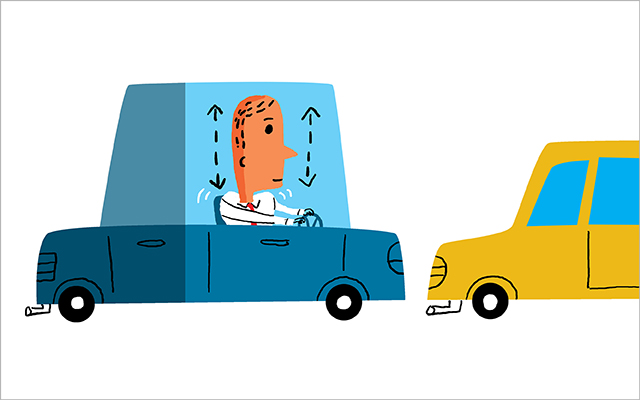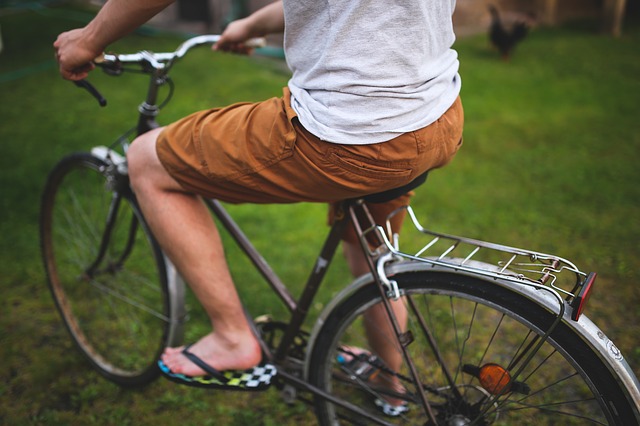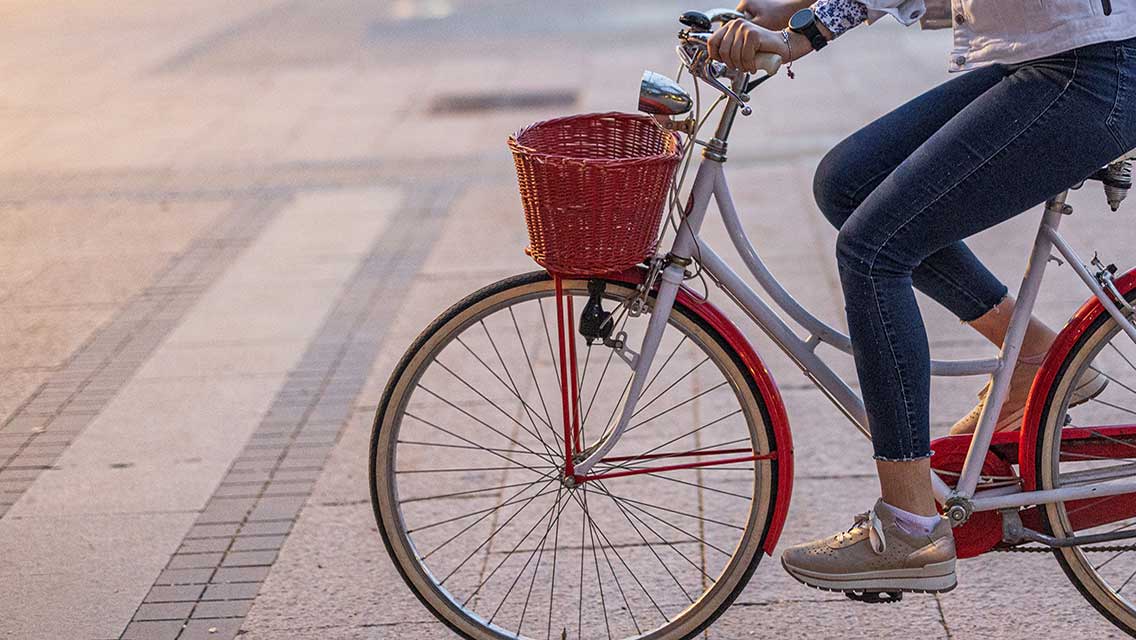Expert Source: Marlynn Wei, MD, JD, is a New York City–based psychiatrist, therapist, and certified yoga teacher. She is the coauthor of The Harvard Medical School Guide to Yoga.
In an ideal world, we’d all have a nice short walk to work. In the real world, the journey often involves spending longer than we’d like on a snarled freeway, noisy bus, or jam-packed train. About 8 percent of American workers (roughly 10 million people) commute an hour or more each way. Meanwhile, the ranks of “supercommuters,” who travel more than 180 miles from home to their jobs, are growing.
A steady diet of long commutes can make us more likely to arrive at our destinations burned out and at risk for poorer health. Research shows that even a brief traffic jam can send a driver’s blood pressure soaring. And driving more than 10 miles to and from work has been linked to higher levels of blood sugar and cholesterol, as well as increased risk for anxiety and depression.
But we do have some control over this seemingly uncontrollable aspect of life, says Marlynn Wei, MD, JD, a psychiatrist and therapist who specializes in anxiety and stress management. Basic attitude and habit shifts can transform a difficult commute into a reasonably pleasant journey.
Challenges to Overcome
- Lack of control. Slow or stopped traffic, bad weather, road construction, a rail breakdown: All of these commuting situations can trigger the stress response. “When you get in the car, you can’t change traffic or a delay,” says Wei. “And that can put you into a tense fight-or-flight state.”
- Cramped positions. Sitting in a car or traveling on a crowded bus or train for long periods can worsen stress, says Wei. “When you can only move your feet and your hands, your body perceives that you’re in a very uncomfortable, semi-trapped state.” (See “What Are Good Stretches to Do After Sitting All Day?” for help getting un-cramped when you get to your destination.)
- Time anxiety. Most of us have a hard time keeping our cool when facing situations that can make us late, she notes. Catastrophic thoughts arise, like If I miss that meeting, I might get fired. If I get fired, I’m doomed.
- Isolation. Commuting solo can make the strain more acute, Wei suggests. “You don’t have support, someone to calm you down and say, ‘It’s OK, we’ll get there.’ That kind of support activates the parasympathetic nervous system, which is all about ‘rest and digest.’” Long hours on the road can also disrupt already-limited time with your partner or family, she adds.
- Sense of helplessness. Lack of alternative transportation options or routes can contribute to a sense of being helpless or stuck. Feeling like you have no choice but to take a job that’s uncomfortably far from home can make the commute even more intolerable.
- Negative inputs. Incendiary talk radio or loud, fast music can intensify the stress of a long commute by ramping up heated emotions.
- Road rage. For some, frustration caused by driving can escalate to dangerous dimensions. “Road rage puts your mind into an irrational state,” Wei notes. “Your senses become super-heightened, and any little thing can seem offensive. You may even forget about reaching your destination as you imagine getting back at other drivers, and you lose touch with reality.”
Strategies for Success
- Set a positive intention. You can improve your commute before you even leave the house, Wei suggests. Spend a moment setting an intention: Today you’re not going to honk at anyone, or you’ll give your seat on the train to someone who needs it. Write down your resolutions if that helps. “That gives you a certain grounding,” Wei says. Then, if you experience a rough commute, “it doesn’t necessarily have to affect your whole day. It’s just part of your day.”
- Be mindful about anger. Developing the habit of observing your thoughts without judging them can ease stress. “For example, if you’re on the road and someone cuts you off, you might get really angry; that’s normal. But instead of obsessing, try saying, ‘OK, I feel angry, and that’s that. It will pass. I won’t judge the other person — or myself.’” Then notice how it does indeed pass.
- Attend to anxiety. The same goes for feelings of panic about arriving late, Wei explains. “Tell yourself, ‘I understand that I’m getting these anxious feelings, and I’m worried about work.’ That distance — the ‘observer distance’ — gives you a little bit of breathing room.”
- Get physical. Find ways to break the car-seat-to-office-chair strain by taking opportunities to move. “Walk a few blocks to extend your commute on foot. After you arrive, take the stairs instead of the elevator,” she suggests.
- Do some deep-breathing shoulder rolls. Try some movement in the car, says Wei. “If you’re stuck in traffic, take a couple of deep breaths, raise your shoulders toward your ears, then lower them. Do it for five to 10 cycles.”
- Create a calming environment. Rather than political rants or loud rock, Wei suggests listening to soothing music or engaging podcasts. Silence is also a great support for mindful observation. You may even want to bring some aromatherapy on board, she says. “Several scents have been scientifically studied for their calming effects, including lavender, citrus, and lemongrass.” Keep some essential oils in the glove compartment or your bag, and take a deep whiff as needed.
- Explore other routes. Is there another way to work that may offer fewer hassles and be quicker? Can you adjust your departure or arrival time to avoid major traffic? If it’s driving that makes you crazy, can you take public transportation for some — or all — of your route?
After all, it’s not necessarily the length of your commute itself that takes the toll; it’s the length of time you spend fighting it that costs you.
This article originally appeared as “The Long Commute” in the November 2017 issue of Experience Life.




This Post Has 0 Comments